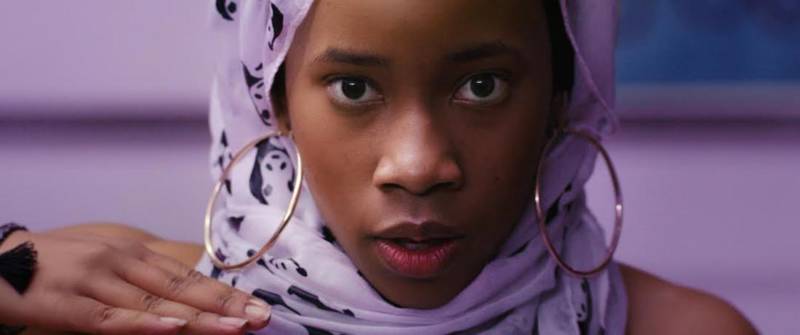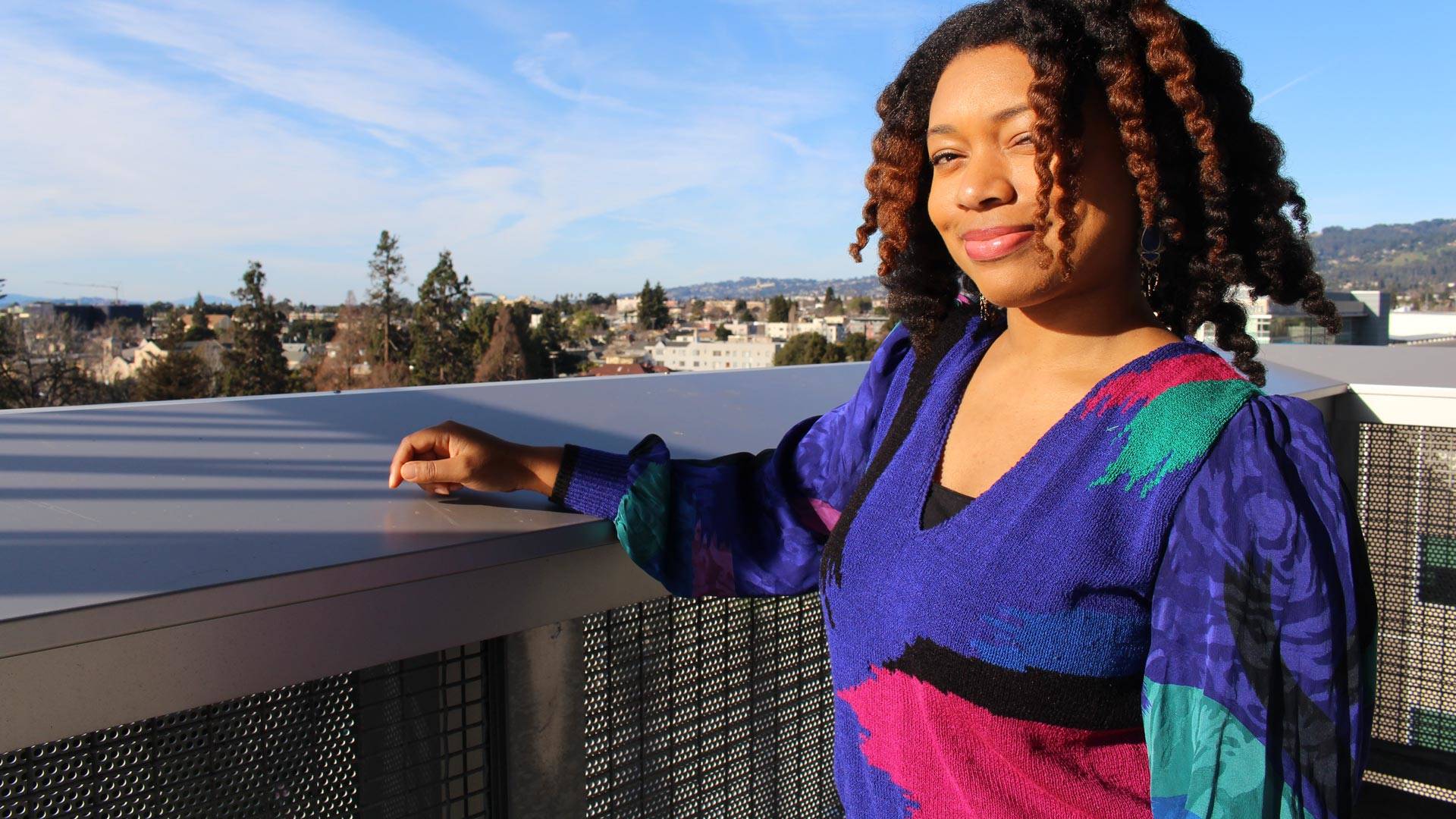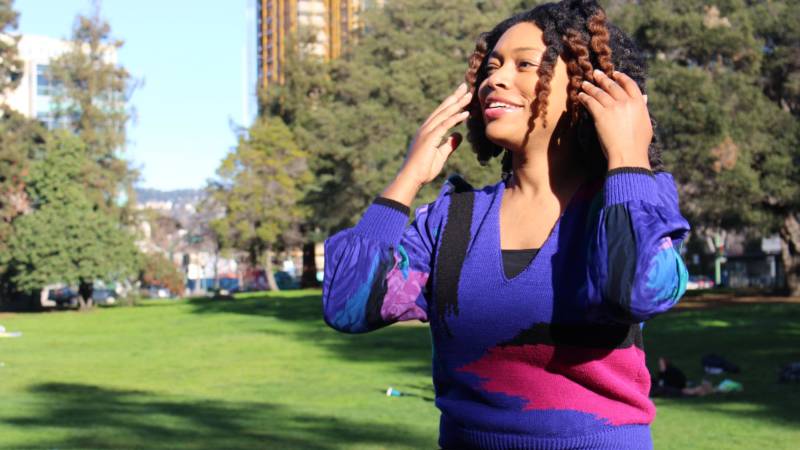Early last week, the South by Southwest festival in Austin announced the 132 feature films to be shown this year — including Jinn, which depicts the coming of age story of a Muslim, African American, foodie, social media-indulging woman who finds young love.

The film’s writer and director, Nijla Mu’min, is the first to acknowledge that the movie was based on her complex upbringing right here in the Bay Area. Born in Berkeley, raised between Hayward and Oakland, Mu’min is the latest filmmaker to rise out of the Bay’s water and make a splash on the silver screen.
And while 2018 is looking to be a banner year for Oakland in film — Ryan Coogler’s Black Panther, Boots Riley’s Sorry to Bother You, and Carlos Lopez Estrada’s Blindspotting, starring Daveed Diggs — Jinn is unlike any of them, the product of Mu’min’s singular perspective. This past week I got a chance to pick her brain about premiering her first full-length feature film, and the path she blazed in order to get here.

Prior to last week’s SXSW announcement, Mu’min had a taste of the spotlight when Filmmaker Magazine listed her as one of the 25 new faces of independent film. An earlier film of hers, Deluge, received some attention and awards, but it was a later film, Dream, that was shown at numerous film festivals and eventually screened on Issa Rae’s film series, #ShortFilmSundays. She’s also worked behind the scenes, as she once served as a production assistant for Ava DuVernay on the set of Middle of Nowhere (DuVernay’s second feature film, before Selma).
Before that, she was rubbing shoulders with big industry names far before they were big industry names. As a kid, she attended summer camp at Oakland’s Mosswood Park with a young Ryan Coogler. And Mu’min’s first film, which she made while studying mass communications at UC Berkeley, was shot near Oakland’s Children’s Hospital and starred a young Yahya Abdul-Mateen II, who viewers might recognize from The Get Down.




